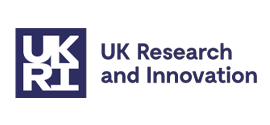
In the current essay, IDVRM Honorary Research Associate, Olya K-Mehri, reflects on the intersections of climate justice efforts with place, belonging and the everyday lived experiences of those affected by migration and environmental change. She argues that environmental policy and adaptation efforts often overlook the gendered impacts of climate-induced displacement, as well as the cultural, spiritual and identity dimensions of being connected to land. By championing inclusive participation, recognising the “spirit of place,” and bridging faith, ethics and policy, she calls for responses to climate migration that are just, grounded and attuned to communities’ sense of belonging.
Joining the Institute of Domestic Violence, Religion & Migration marks a new chapter in my journey of exploring how justice takes shape in the context of climate change. I will be focusing more closely on the gendered impacts of climate-induced migration and critically examining how adaptation policies intersect with lived realities. While my earlier work has not centred on gender, it has always engaged with questions of justice across interfaith dialogue and intergenerational ethics, equity and participatory governance. These foundations now shape my research into the gendered dimensions of displacement, enriched by the Institute’s interdisciplinary and collaborative environment.
I’ve spent the last few years researching intergenerational justice in the context of climate change (see my academic profile), comparing conceptualisations of environmental rights and responsibilities to future generations across Western secular traditions and Islamic mysticism. In different ways, this work has turned towards perennial philosophies that regard environmental responsibility as a doctrinal imperative. Taking a comparative ethics approach, I have sought to broaden dominant climate justice discourses beyond Euro-American paradigms, bringing into view the moral and spiritual dimensions of environmental stewardship that are often overlooked in mainstream policy debates. Central to my practice is the belief that climate responses must be culturally resonant, ethically grounded and attentive to the embodied experiences of those most impacted yet least represented in decision-making processes.
The climate and environmental sectors remain among the least diverse policy spaces in the UK. Despite the profound implications of environmental change for people of all backgrounds, there is still insufficient genuine engagement with individuals from a wide range of faith traditions, socio-economic contexts and migration histories. I’ve witnessed climate and conservation policy consultations where the same narrow demographics tend to dominate. What gets produced in such rooms rarely reflects the knowledge or needs of the people disproportionately impacted by climate change.
This lack of diversity is more than just a representational shortcoming; it has consequences for environmental resilience. Communities that are not meaningfully included in shaping climate and conservation policy are less likely to see themselves reflected in environmental priorities and, therefore, less likely to develop long-term investment, be that emotional or practical, in these agendas. My work has increasingly focused on widening participation for marginalised communities in these spaces, particularly in local environmental initiatives. Specifically, I have found that one of the most promising pathways for improving such participation is through direct engagement with the natural world.
For individuals who may not yet feel a deep sense of connection to the place where they live, either through physical or mental circumstances, nature can be a universal point of entry. It is often far easier to feel an affinity with one’s surroundings through the environment than through civic or political structures. The simple act of learning the names of local flora and fauna, regardless of whether those names are spoken in English or in one’s mother tongue, can profoundly change the way a landscape feels. A place that once appeared anonymous or unwelcoming becomes part of one’s own lived experience; the land begins to “speak” back. It’s like discovering a new vocabulary for belonging, beyond notions of citizenship, found in the quiet reciprocity of the living world we come to inhabit.
This, I believe, is why the natural world plays such an important role in grounding identity and cultivating belonging for displaced and marginalised populations. Yet, through my policy and community practice, I have observed that while refugee and migrant groups often maintain strong community involvement through religious institutions such as churches, mosques and temples, their engagement with environmental organisations like national parks, conservation charities and local nature reserves is strikingly limited. I don’t believe this gap to be a reflection of disinterest on the part of these communities, but rather of a persistent failing within environmental organisations to create welcoming, culturally aware and accessible spaces. Addressing this gap is essential, for environmental movements that depend on broad-based participation to be effective, and for public health and wellbeing.
”I don’t believe this gap to be a reflection of disinterest on the part of these communities, but rather of a persistent failing within environmental organisations to create welcoming, culturally aware and accessible spaces.”
Evidence consistently shows that access to nature improves mental health, reduces stress and strengthens social connection. For those who have experienced displacement, exclusion, or trauma, such access can be transformative. Ensuring that environmental institutions better engage marginalised communities is therefore both a matter of justice and an opportunity to build more inclusive and resilient movements for environmental protection.
These questions of access and belonging extend into the design of our built environments. Urbanism and environmental policy are also deeply gendered terrains, shaping who feels safe, welcome, or excluded in particular spaces. Public parks, streets, transport hubs and conservation sites all carry social meanings that influence accessibility and belonging, particularly for women and those from global majority backgrounds. As policy increasingly turns towards place-based approaches (as I outline in my recent report), there is a growing recognition that the future of effective climate and migration policy lies in understanding the specific textures, histories and social geographies of place.
Interestingly, even in highly secular policy contexts, there has been an emergence of language around the “spirit of place”, which is terminology that draws, however unacknowledged, on spiritual traditions. This concept speaks not only to the physical characteristics of a location, but also to its identity: the unique combination of heritage, culture and ecology that makes a place distinct. When places retain a strong sense of identity, when they have a “feel” rooted in their history and character, they can serve as powerful anchors of belonging. Conversely, when places lose their identity through homogenised development, the erasure of heritage, or the flattening of cultural difference, they can become disorientating and alienating for residents. This erosion has social consequences not unlike those experienced by individuals uprooted from their home environments: a loss of connection, diminished sense of belonging, and weaker investment in the community’s future. Recognising and preserving the spirit and identity of place is therefore a cultural and a policy must, one that holds particular resonance for communities navigating the dislocations of climate change and migration.
It is from this understanding that my own path into climate justice has also taken me through creative and community-based work. Earlier this year, I founded the Rooted Art Collective, a grassroots initiative exploring the intersections of art, nature and community wellbeing. Through this work I’ve seen how accessible the arts can be as a means of facilitating connection to the environment, both as a personal wellness tool and as a catalyst for community cohesion. I’ve observed how inclusive, participatory spaces for creativity can support those who feel disconnected from their surroundings, helping them cultivate a deeper sense of belonging and responsibility towards the living world.
It is this same sense of belonging that I now bring into my affiliation with the Institute, where I hope to explore how policies around displacement and adaptation intersect with the inequalities, cultural contexts, and vulnerabilities that shape people’s lives. I am especially interested in how gender-aware approaches can nurture resilience, dignity, and agency for those navigating the compounded challenges of environmental change and migration. Through this collaboration I aim to shape applied interventions that challenge reductive framings of climate migration, foreground the voices of those most affected, and expand the possibilities for inclusive, culturally grounded, and justice-oriented policymaking.
About the Author

Olya is an Honorary Research Associate at the Institute of Domestic Violence, Religion & Migration. She brings an interdisciplinary perspective that bridges environmental ethics, public policy and community practice. With a research background in interfaith dialogue and climate ethics, her work explores how diverse philosophical and spiritual traditions can inform justice-orientated approaches to environmental responsibility. She leads projects on just transition and inclusive climate policymaking, centring the experiences of marginalised communities. Olya can be reached at: ok295@exeter.ac.uk
Disclaimer: IDVRM aims to serve as a platform that researchers internationally, especially in the non-western world, can use to disseminate their research. We do our best to ensure that authors who publish with us have conducted their research following the highest ethical standards, with decolonial reflexivity and principles of least harm to participants in mind. We do not require authors to submit ethical documentation, but we ask our authors to provide sufficient information about ethical procedures in their submissions. It is beyond the capacity of IDVRM to verify this information. Authors should be reached directly to respond to questions regarding their research.
Opinions expressed by authors contributing to our blog are those solely of the authors and do not necessarily represent the position of IDVRM, its Director or other team members. IDVRM is comprised of diverse individuals who are encouraged to share their experiences and opinions openly with recognition that other team members may have different experiences and positions. IDVRM does not claim to represent any one community and we understand that belonging to a specific group does not entitle any one of us to speak for all.
AI Use: IDVRM may use AI tools for editing and proofreading purposes to improve language, syntax and grammar. The essay is the original work of the author.
